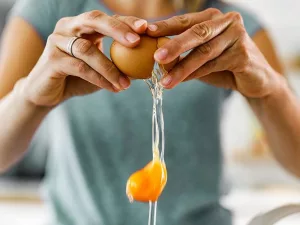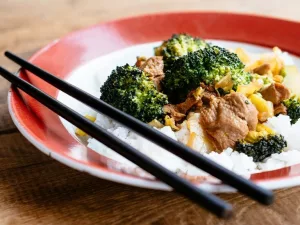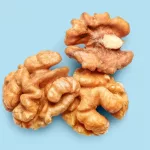Ayurveda regards sleep as a fundamental life instinct, vital for all living beings. We require sleep to restore and revitalize our body, mind, and spirit.
Within Ayurvedic thought, sleep is one of the three foundational supports of health, termed nidra. The other two are diet (ahara) and restraint of sexual energy (brahmacharya).
A healthy life depends on the proper harmony of these three pillars.
Kinds of sleep

Ayurveda links sleep and other physiological processes to the three constitutional forces, or doshas. These are:
- vata (air/wind)
- pitta (fire)
- kapha (earth and water)
Sleep is chiefly influenced by kapha, which brings about the sensation of heaviness and drowsiness.
The Charaka Samhita, a classical Sanskrit Ayurvedic text, describes six types of sleep. Per the scripture, sleep may result from:
- natural, balanced sleep without external disturbances
- depression
- excess kapha due to overeating foods such as chocolate, cheese, or fried items
- mental and physical exhaustion from excessive labor
- long-term illness
- bodily imbalance or injury
The Ayurvedic clock
Natural sleep aligns with the Ayurvedic clock, which highlights the appropriate times to sleep, the duration, and the optimal waking hour.
Ayurveda divides the day into six four-hour segments, each dominated by a particular dosha:
TimeDominant dosha
6 a.m. to 10 a.m. — kapha
10 a.m. to 2 p.m. — pitta
2 p.m. to 6 p.m. — vata
6 p.m. to 10 p.m. — kapha
10 p.m. to 2 a.m. — pitta
2 a.m. to 6 a.m. — vata
According to this clock, it’s ideal to wake up before sunrise and go to bed before 10 p.m., since the kapha period promotes sluggishness in the body.
It’s also beneficial to leave at least a two-hour interval between dinner and bedtime. A recommended dinner time is around 7 p.m. If you must eat late, choose something light and finish eating two hours before sleeping.
Recommendations by dosha

Ayurveda offers tailored lifestyle and dietary adjustments to enhance sleep based on your dominant dosha.
Vata
Excess vata reflects an increase in wind-like qualities: lightness, motion, and roughness.
Diet for vata
People with aggravated vata are advised to consume foods that boost kapha qualities—heaviness, stability, and smoothness.
Those with high vata should favor nourishing, grounding foods, according to Lineesha K.C., an Ayurvedic physician at Greens Ayurveda in Kerala. Suggested items include:
- dairy
- coconut milk
- meaty broths and stews
- avocado
- butter and ghee
- rice porridge
K.C. recommends this simple bedtime drink:
- 8 oz warm milk (choose a full-fat variety)
- 1/4 tsp nutmeg
- 2 cardamom pods
- optional sweetener such as jaggery or honey
Varalakshmi Yanamandra, an Ayurvedic health coach and director at Ayur Wellness & Pain Centre, advises warm meals like red rice and meat broth.
Aggravated vata can make falling asleep difficult.
Sleep practices for vata
To calm vata, prioritize nourishment and grounding routines.
Foot massage or full-body abhyanga with soothing oils such as Mahanarayan Thailam or brahmi oil promotes better rest. For head massage, use Dhanwantharam Thailam or sesame oil.
Vata can be provoked by excessive stimulation. Avoid TV and phone screens an hour before bed and skip late-evening workouts if vata is high.
For tranquil sleep, ensure your bedroom is well-ventilated and dark. Aromas like chamomile, lavender, sweet orange, or eucalyptus may aid relaxation.
Sex and vata
Vata types benefit from tender, nourishing intimacy. Frequent partners, vigorous intercourse, and repeated orgasms may overtax the vata nervous system. Post-sex affection and rest are also important.
Pitta
Pitta imbalance can make falling asleep challenging, especially when work stress is intense or the diet is overly acidic.
Diet for pitta
To soothe pitta, choose cooling foods like fresh fruits and dates, and opt for a moderate to substantial dinner.
Pitta individuals have robust digestive fire and may awaken hungry at night if they haven’t eaten adequately before bed.
If pittas dine early and feel hungry later, a light snack such as puffed rice or a glass of buttermilk is helpful.
Yanamandra suggests a teaspoon of Jeevantyadi Gritam (medicated ghee) in an eight-ounce glass of warm milk.
Sleep habits for pitta
Yanamandra notes that pitta types can stay up a little later, around 11 p.m.
For improved sleep, a warm-foot massage with ghee is recommended. Sleep in a cool, airy room; use sweet, cooling scents like jasmine and rose; and cover lightly with a thin blanket.
Cooling oils such as bhringaj or amla are suitable for head massage.
Sex and pitta
Pitta generally has a strong libido due to passion and vigor. They may enjoy multiple partners and dominant roles. Still, cooling and calming practices post-sex are important for recovery.
Kapha
Kapha constitutions contain more earth and water elements.
Diet for kapha
Kapha diets should emphasize warming, light foods like vegetable soup and bitter greens. Avoid sweets at dinner.
A brief walk after dinner helps digestion. Vigorous daily exercise is particularly beneficial for kapha types.
Regular dry brushing and udvartana (dry herbal powder massage), using a blend of herbs, can stimulate metabolism for those with a kapha tendency. See research reference here.
Sleep patterns for kapha
Kapha-dominant people tend to be heavy sleepers and may oversleep. If kapha is excessive, set an early wake-up time and maintain it.
Favor stimulating, warming aromas like eucalyptus, rosemary, and ginger to counteract kapha sluggishness.
Sex and kapha
Kapha types may take time to become aroused, but once engaged they exhibit strong endurance. Sexual activity can serve as effective exercise for kapha individuals.
Sleep disturbances and therapies
Dosha imbalance is a principal cause of disrupted sleep.
“Disturbed sleep may cause headaches, migraines, and even insomnia,” says Yanamandra.
Aggravated vata and pitta can arise from factors such as:
- consuming too many dry, crunchy foods like salads
- eating excessive cold items like ice cream
- staying up very late
- work-related stress
Chronic insomnia can be addressed with shirodhara, a therapy where warm oil is gently poured over the forehead.
For calming pitta, treatments like netra tarpana (eye nourishment therapy) and shiro lepa (herbal head packs) may be recommended. These procedures should only be performed by a qualified Ayurvedic practitioner. See references for netra tarpana here and for shiro lepa here.
Ayurvedic approaches for restful nights
Regular yoga practice combined with pranayama (breathwork) in the morning can support improved sleep.
Research also indicates that ashwagandha root (Indian ginseng) may enhance sleep quality. Ashwagandha powder mixed with nutmeg and taken in warm milk is a traditional remedy.
Herbal treatments are highly individualized and may not suit every constitution. Consult an Ayurvedic practitioner before using herbs and follow their dosage guidance.
Napping: what to do and what to avoid
“Ayurveda generally discourages diva swapna (daytime sleep),” says K.C., because naps can increase kapha in the system.
Exceptions exist for those with vata-related issues such as:
- joint pain
- nerve disorders
- general muscle weakness
- anxiety
Other exceptions include:
- musicians who frequently use their vocal cords
- people who are breastfeeding
- frequent travelers
If you nap, do so on an empty stomach about two hours after lunch to allow digestion. Keep naps brief—around 20 minutes—while seated in a reclined chair to prevent pitta from accumulating in the head.
Ayurveda advises against napping for those who are:
- kapha-dominant
- overweight
- eating a diet high in oily or fried foods
- generally healthy without underlying conditions
However, daytime rest can be useful in summer when heat disrupts nighttime sleep.
Summary
Ayurveda, an ancient medical system, emphasizes balancing diet, sleep, and sexual conduct for overall well-being.
Sound sleep is intertwined with the three doshas and the Ayurvedic clock. While modern life may make strict adherence difficult, applying these principles can help restore equilibrium.

























Leave a Reply
You must be logged in to post a comment.